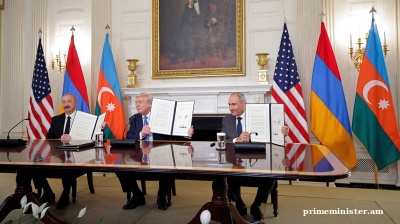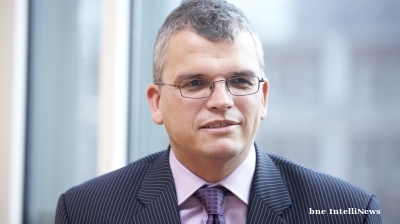Just a few weeks ago we were all locked in heated discussions about climate change and social responsibility. Then, life threw us a curveball – the coronavirus pandemic. It’s changed life for thousands of people almost overnight and created unprecedented challenges for businesses. The threat of pandemic has become the ultimate test of companies’ sustainability and commitment to environmental, social and governance (ESG) practices. With capital markets having effectively frozen, priorities have shifted to business continuity and economic survival.
It’s not hard to tick boxes – copy nice sounding policies, compose heartfelt CEO speeches – when time is on your side. However, with Covid-19 spreading rapidly across the globe, we have neither the time nor the time-proven tactics to follow. Benchmarking isn’t possible and clear answers are hard to come by, as the situation changes minute by minute. The only way forward is to look at your core values and act accordingly.
We spoke with Russian business leaders and found out what they are doing to ensure the sustainability of their operations amid the global pandemic, as well as what values they rely on during these difficult times.
“We have identified several stakeholders groups that would be the most impacted by the current situation and have examined what can we do to protect them,” says Alexander Tynkovan, President of Russia’s largest electronics retailer M.Video-Eldorado Group, ultimately replicating a key first step for any ESG strategy. Like many other businesses, the Group has decided to focus on what is under their control: ensuring the safety of their employees, customers and partners. For example, by offering customers more contactless payments options, free delivery and additional cashback for online purchases and maximising and simplifying electronic document flow to support struggling vendors.
Speaking of employees, Yandex, Russia’s internet giant running businesses ranging from Uber to Spotify analogues, was the first among large Russian companies to ask their employees to work from home on March 13th. Many more followed suit. All conscientious companies also adopted enhanced sanitizing measures, employees’ health supervision and provided work from home options through additional investment in digital communications channels. And the latter could have a long-lasting positive impact on our environment.
“We didn't want to risk the well-being of our partners, investors, contractors and employees, so we’ve largely switched to video calls that we never used in such scale.” says Andrey Guryev, CEO of PhosAgro, one of the world’s leading phosphate-based fertilizer producers. However, remote working is not always possible, and for some companies continuing offline operations in this challenging environment is a tough but necessary decision. For example, fertilizers are an integral part of the global food chain and their long-term impact on our well-being is crucial. That’s why PhosAgro has enhanced safety protocols for employees who can’t work remotely. “We must do everything reasonably possible to continue to supply farmers in more than 100 countries around the world with crop nutrients.” says Guryev.
A similar approach was taken up by ChelPipe Group, one of the five largest pipe manufacturers in the world that has clients in industries ranging from oil and gas to producers of agricultural equipment and household appliances. In 2010, the company, which is often the largest employer in cities where it operates, adopted its META philosophy based on the principles of sustainability (META stands for Mindfulness-Employees-Technologies-Aspiration). Now, thanks to its continued investment in sustainability, it is better positioned to weather the storm. “We’ve been consistently developing in-house medical centres with highly skilled medical personnel and state-of-the-art equipment, which is crucial for regions far from Moscow.” says Boris Kovalenkov, CEO of ChelPipe Group.
Still, the toughest challenges lie ahead for those on the front lines, facing millions of customers every day. That category nowadays includes not only doctors, but also food retailers and pharmacies.
Х5 Retail Group, Russia’s largest food retailer, is gearing up for the challenge and ensuring there is sufficient inventory in their distribution centres to last for several weeks while prices remain stable. On a call with investors on Thursday, X5 CEO Igor Shekhterman said: “We have not only increased deliveries of basic foods and essential goods by 2-4 times, but also increased the number of staff in our stores, cancelled all holidays, changed the work schedule and redistributed transport capacities to focus on high-demand product categories. We are also monitoring our stores in real time and redirecting product flows to stores where we see particularly high demand. If there is a shortage of items at a particular store, a new delivery can be made within a day.” Commenting on online and express delivery Shekhterman added: “Thanks to our significant investments into our online platform and delivery infrastructure, we are now able to handle the increase in demand for these services. The average number of Perekrestok.ru orders placed per day on the weekend of March 14-15th jumped more than 90% compared to the previous week. We are operating at full capacity and delivering over 8,000 orders per day.”
OZON, Russia’s leading e-commerce platform, delivers everything from furniture to food and non-prescription drugs to customers across Russia’s 11 time zones. Amidst the coronavirus pandemic, the company is implementing measures to battle inflated pricing by its marketplace sellers and is offering contactless delivery. While immediate concerns have taken center stage, OZON is remains focused on the company’s long-term social responsibility. “These days more than ever we feel responsible for the quality of life of millions of customers and tens of thousands of partners across our vast country – and not just the largest cities. During this difficult time, we feel a responsibility to ensure that we continue to fulfil our mission to deliver anything and anywhere in Russia.” says Daniil Fedorov, CFO of OZON.
Reliable financial services are also crucial in such times. Tinkoff Bank, founded in 2006, has pioneered not only the branchless business model in Russia, but also a unique cloud call centre serviced by over 10,000 employees, a significant share of which are from socially vulnerable demographic groups. “From the very beginning, our call centre programme was aimed at providing jobs to single mothers, people with disabilities and others, who have limited opportunities to work 9 to 5 outside the home.” explains Oliver Hughes, CEO of Tinkoff Bank. “The fact that we are a digital financial institution has always been beneficial to our customers, but it is especially important amid the Covid-19 situation. A person can apply for a credit card online and our representative delivers it to any location wearing a mask and carrying sanitizing gel.”
These examples are just the tip of the iceberg, and there is so much more worth attention both on with regards to ESG in Russia in times of crisis. Still, these cases underline a strong commitment to social responsibility among Russia’s business leaders. It took a pandemic to bring the “S” in ESG, the so-called ugly duckling of investing, to the forefront of this crisis. While unremarkable at first glance, social policies can have a great impact on companies’ resilience and sustainable growth. Corporates that rely on their values are quick to react. They will weather this storm and become more attractive to investors tomorrow.
Opinion

Europe faces harsh realities in Ukraine as long war looms - Ash
Timothy Ash, senior sovereign strategist at BlueBay Asset Management in London, says European policymakers are belatedly waking up to the fact that the war in Ukraine is set to be prolonged — and that they alone may have to foot the bill.

COMMENT: US-brokered Armenia-Azerbaijan peace deal exposes Russia’s strategic failures
The recent peace breakthrough between Armenia and Azerbaijan is a major diplomatic win for the United States and a setback for Russia, according to a new report published by the Atlantic Council.

COMMENT: Why Beijing will never take Taiwan
Xi Jinping needs to think again before he sends so many young Chinese men and women to their deaths on Taiwan, for if the PLA does one day dare to land, they will be buried here.

COMMENT: Ukraine’s coming financial storm
“A crisis is drawing ever closer. It will break in Ukraine, but it won’t begin on the frontlines, where the country’s battle-weary brigades continue to impose a brutal cost on the Russian invader," writes Timothy Ash of BlueBay Asset Management.


